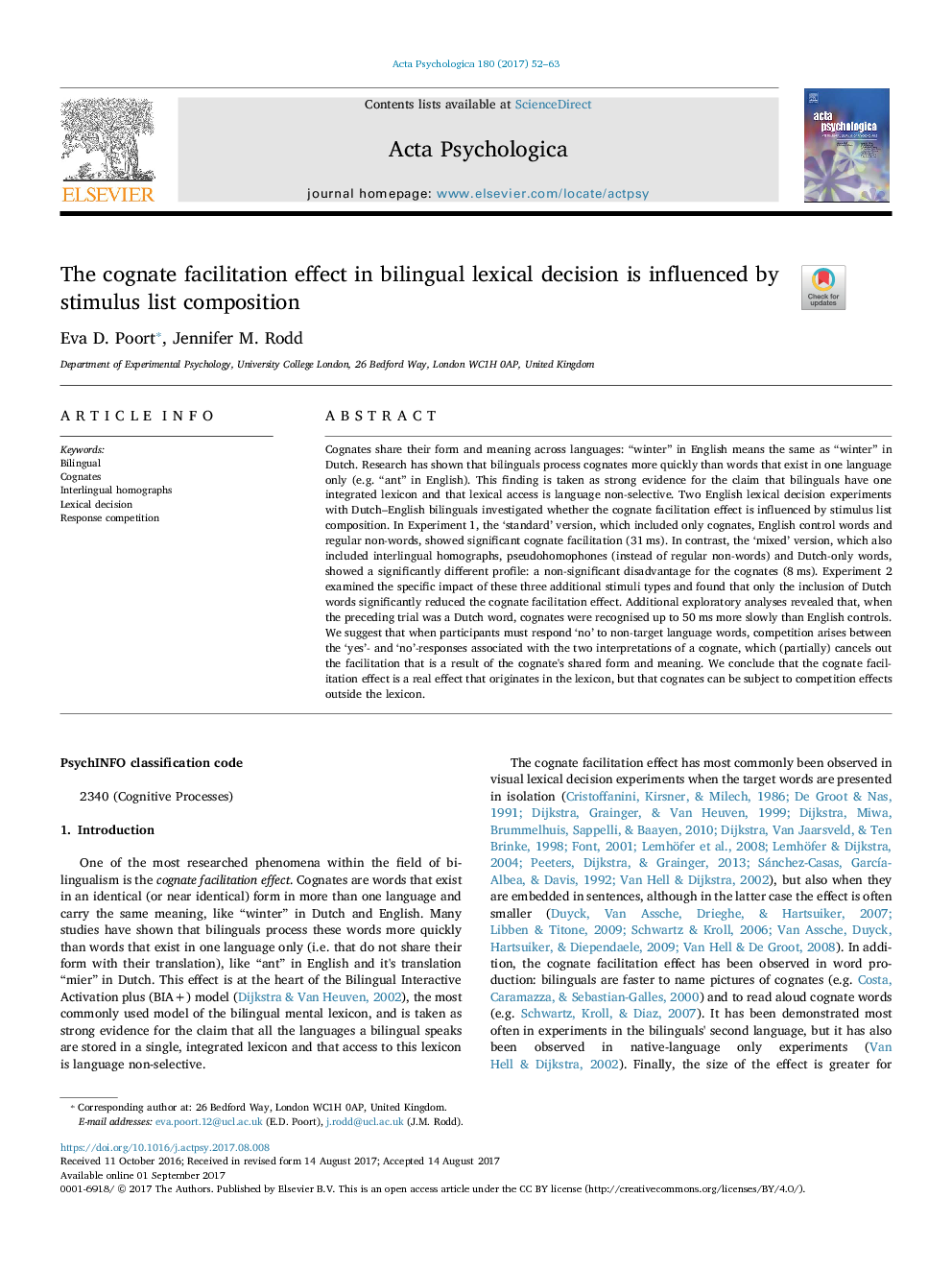ترجمه فارسی عنوان مقاله
اثر تسهیل شناختی در تصمیمات لغوی دو زبانه تحت تأثیر ترکیب لیست محرک قرار می گیرد
عنوان انگلیسی
The cognate facilitation effect in bilingual lexical decision is influenced by stimulus list composition
| کد مقاله | سال انتشار | تعداد صفحات مقاله انگلیسی |
|---|---|---|
| 133950 | 2017 | 12 صفحه PDF |
منبع

Publisher : Elsevier - Science Direct (الزویر - ساینس دایرکت)
Journal : Acta Psychologica, Volume 180, October 2017, Pages 52-63
ترجمه کلمات کلیدی
دو زبانه وابسته است، هموگراق بین زبانی، تصمیم منطقی، رقابت پاسخ
کلمات کلیدی انگلیسی
Bilingual; Cognates; Interlingual homographs; Lexical decision; Response competition;

